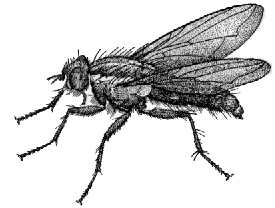
I just ordered a season of fly predators for control of what was a bad problem last year...I had more flies last year than I care to remember. You could not sit outside last summer as the fly count was so severe so...I've been told that Fly Predators work really well.


Here is what they say about them:
Fly Predators are the original method of fly control. They are nature's own enemy of all common manure and rotting organic matter breeding pest flies, including the common house fly, horn fly, biting stable fly and lesser house fly.
In the natural environment Fly Predators serve as a major check of pest fly populations by destroying the next generation of flies in their immature pupa (cocoon) stage. Most locations likely have some of the species in Fly Predators already, but unless supplemented regularly, they cannot provide the nearly total fly suppression people prefer.
Fly Predators are tiny, completely biteless and stingless. They never become a pest themselves. After they've emerged, their single minded pursuit is to reproduce by finding pest fly pupa. Because of their small size and the fact they live their entire life cycle on or near manure (where the pest fly pupae are typically found), Fly Predators go virtually unnoticed.
Sounds good to me, no pesticides and no flies, a win win!
Does anyone have any experience with these critters?

Comments (9)Subscribe to CommentsComment